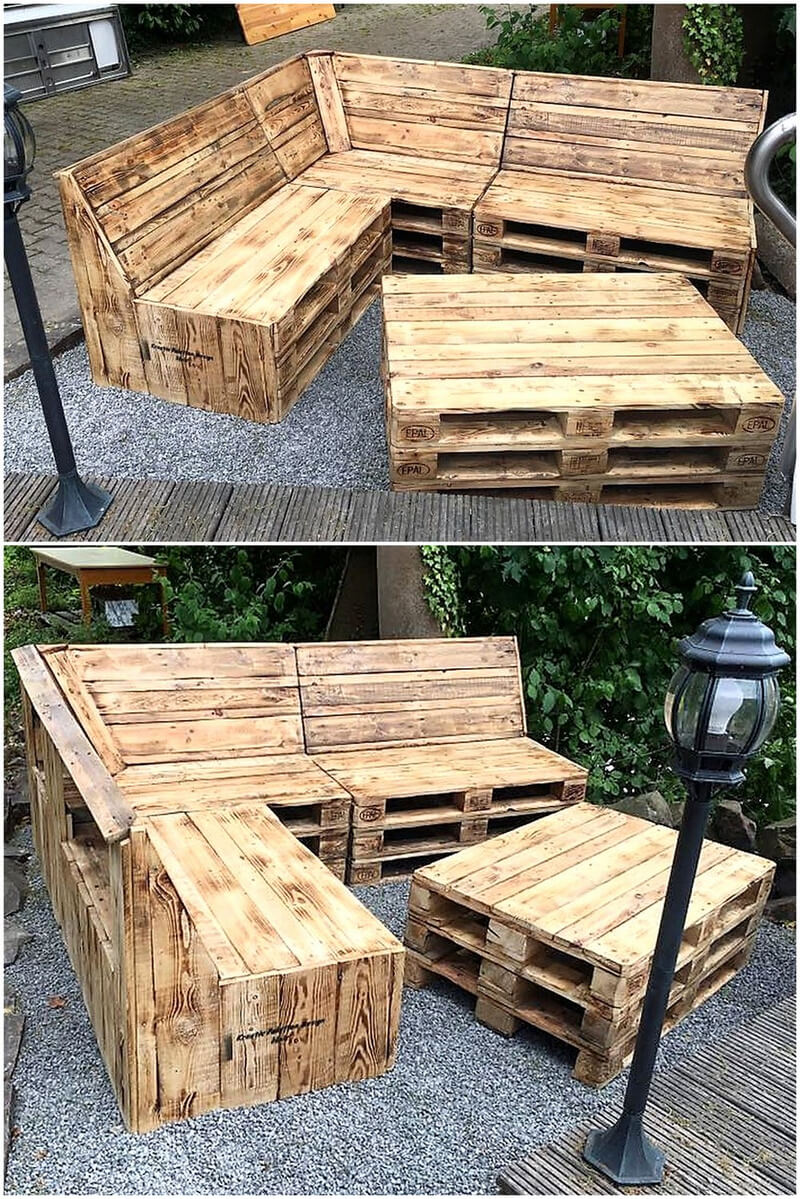Unlocking Value: Transforming Wood Pallets into Business Opportunities
In today's fast-paced and ever-evolving market, businesses are constantly searching for innovative ways to maximize their resources and reduce waste. One often overlooked resource is the humble wood pallet, a staple in shipping and storage that has the potential to be transformed into a profitable asset. As more companies embrace sustainability and seek to minimize their environmental impact, the opportunities for reimagining wood pallets are becoming increasingly evident.
From furniture and home decor to creative packaging solutions, the versatility of wood pallets opens the door to a wealth of entrepreneurial ventures. This article explores how businesses can tap into the potential of wood pallets, turning what is typically seen as industrial waste into valuable products and services. By unlocking the hidden value in wood pallets, companies not only contribute to a circular economy but also create new revenue streams that can drive growth and innovation.
The Versatility of Wood Pallets
Wood pallets have emerged as a cornerstone in various industries due to their exceptional versatility. They serve as a fundamental means of transportation and storage, facilitating the movement of goods efficiently across different sectors. From large warehouses to retail environments, wood pallets provide a reliable solution for logistics, allowing companies to streamline their operations while ensuring that products remain undamaged throughout the shipping process.

Beyond traditional uses in shipping and storage, wood pallets have found innovative applications in creative projects and sustainable practices. Businesses are increasingly repurposing old pallets into furniture, decor, and even agricultural solutions. This trend not only promotes sustainability by reducing waste but also opens new avenues for small businesses, artisans, and entrepreneurs to create unique products that resonate with environmentally conscious consumers.
Additionally, wood pallets present opportunities for businesses in reuse and recycling. Companies specializing in pallet recycling can collect used pallets, refurbish them, and sell them back into the market. This circular approach not only generates revenue but also reduces the demand for new materials and minimizes the environmental footprint. Overall, the multi-faceted nature of wood pallets continues to unlock value and inspire innovation across diverse industries.
Sustainable Practices in Pallet Recycling
The recycling of wood pallets is an essential part of sustainable practices in the supply chain. By effectively reusing and refurbishing pallets, businesses can significantly reduce waste and minimize their environmental footprint. Many companies are implementing take-back programs, allowing businesses to return used pallets for refurbishment or recycling. This approach not only extends the life cycle of the pallets but also conserves resources that would otherwise be used to produce new ones.
A growing number of organizations are adopting innovative methods to repurpose wood pallets, transforming them into new products. From furniture to landscaping materials, the versatility of reclaimed wood leads to a range of opportunities that align with eco-friendly values. These initiatives not only provide businesses with additional revenue streams but also enhance their brand image as environmentally responsible entities, appealing to customers who prioritize sustainability.
Furthermore, collaboration among industries can amplify the impact of pallet recycling initiatives. By forming partnerships between manufacturers, retailers, and logistics companies, a circular economy can be established where wood pallets are continuously circulated within the system. This model fosters shared responsibility for waste reduction and enables the development of standardized practices for pallet collection and refurbishment, ensuring that more pallets can be reused rather than discarded.
Innovative Business Models Using Wood Pallets
Businesses are increasingly recognizing the potential of wood pallets beyond their traditional use in shipping and storage. One innovative model is pallet recycling, where companies collect used pallets, refurbish them, and sell them at a reduced cost. This approach not only reduces waste in landfills but also provides affordable options for small businesses that need reliable shipping solutions. By investing in a pallet recycling operation, businesses can create a sustainable revenue stream while supporting environmental initiatives.
Another exciting opportunity lies in pallet customization. Entrepreneurs can transform wood pallets into bespoke furniture or decor items, targeting consumers looking for unique and eco-friendly home solutions. By offering custom designs, businesses can tap into the growing market for personalized products. Additionally, workshops teaching patrons how to create their own pallet furniture are gaining popularity, further expanding business potential while fostering community engagement.
Finally, logistics companies can capitalize on the circular economy by creating systems for pallet pooling. Instead of individual businesses owning their pallets, a pooling service allows multiple companies to share a fleet of pallets, promoting efficiency and reducing costs. This model encourages collaboration among businesses while minimizing the environmental impact associated with production and disposal. By facilitating a network for pallet sharing, companies can streamline operations and foster a new ecosystem of shared resources.